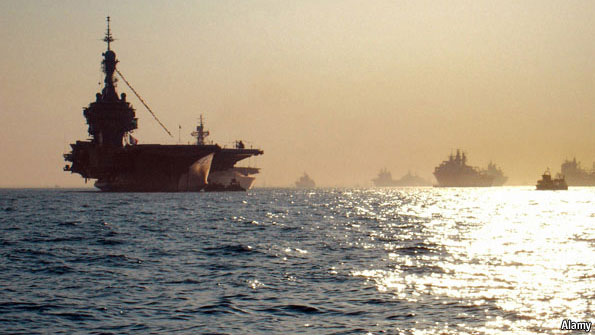
From the Economist: Mr Cameron and Mr Sarkozy are determined to use next month’s summit to give new momentum to Anglo-French defence relations. However, both want to avoid grand, visionary statements of intent that might prompt suspicions in either country, especially among Conservative Eurosceptics (of whom the British defence secretary, Liam Fox, is one). The discussions will involve some 40 different areas for potential co-operation, but informed sources say the emphasis will be on practical things that save money or preserve capabilities. As François Heisbourg, of France’s Foundation for Strategic Research, says: “The focus for now should be on those things that are relatively politically easy, but which are not necessarily small.” Mr [Etienne] de Durand adds: “This is about pragmatic gains for both parties. It’s about being sex buddies rather than marriage.”
Logistics, particularly long-range airlift of heavy equipment, come high on the list. Dr Fox and his French opposite number, Hervé Morin, have already hinted at a willingness to pool both countries’ A400M military transports, which are due to enter service from 2012. France might also gain access to Britain’s seven Boeing C-17s, which are bigger and faster than anything in the French fleet. Another possibility is an agreement to share aerial tankers. Britain is purchasing 14 A330 MRTTs in a controversial (and expensive) £13 billion ($20.6 billion) private finance initiative deal, whereas France has a serious capacity gap ahead.
There are other obvious areas for co-operation. Research and technology—for example on armed drones and dealing with improvised explosive devices—is one. On training, France is offering Britain access to its jet pilot school. On procurement, complex, politically driven multinational programmes that are bedevilled by demands for all the parties to share in the work, such as the Eurofighter Typhoon, could make way for simpler, bilateral projects.
There are even discussions about Britain sharing in France’s nuclear-warhead simulation testing facilities, rather than replicating them at huge cost. Talk of the pair’s nuclear-missile submarines sharing patrols is likely to remain just that. But there may be scope for agreement over aircraft carriers. Dr Fox and Mr Morin have ruled out the notion of binational crews, but they are still exploring other ways to enhance the interoperability of France’s Charles de Gaulle and Britain’s planned two new carriers, which seem likely to be spared by the defence review. The aim is to ensure a permanent carrier presence at sea for both countries. Maintenance cycles could be co-ordinated and prior agreements reached on the circumstances in which one country would make its carrier available to the other. If, as seems increasingly likely, the British decide to equip at least one of their carriers with a catapult (allowing French Rafale strike fighters to fly from it), that will be a strong signal of future intentions. (photo: Alamy)
Image: alamy%2010%2015%2010%20anglo%20french%20defense%20cooperation.jpg
